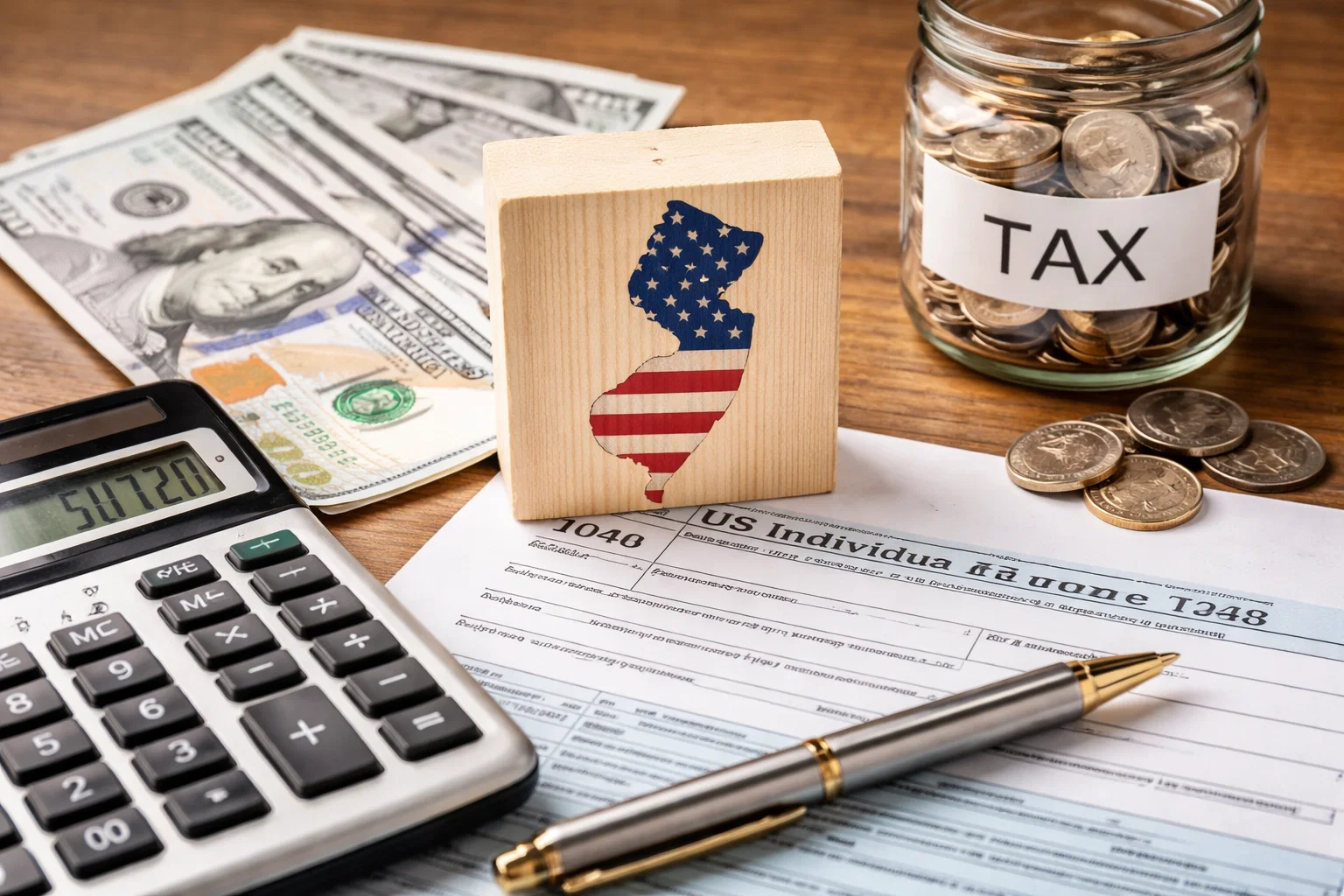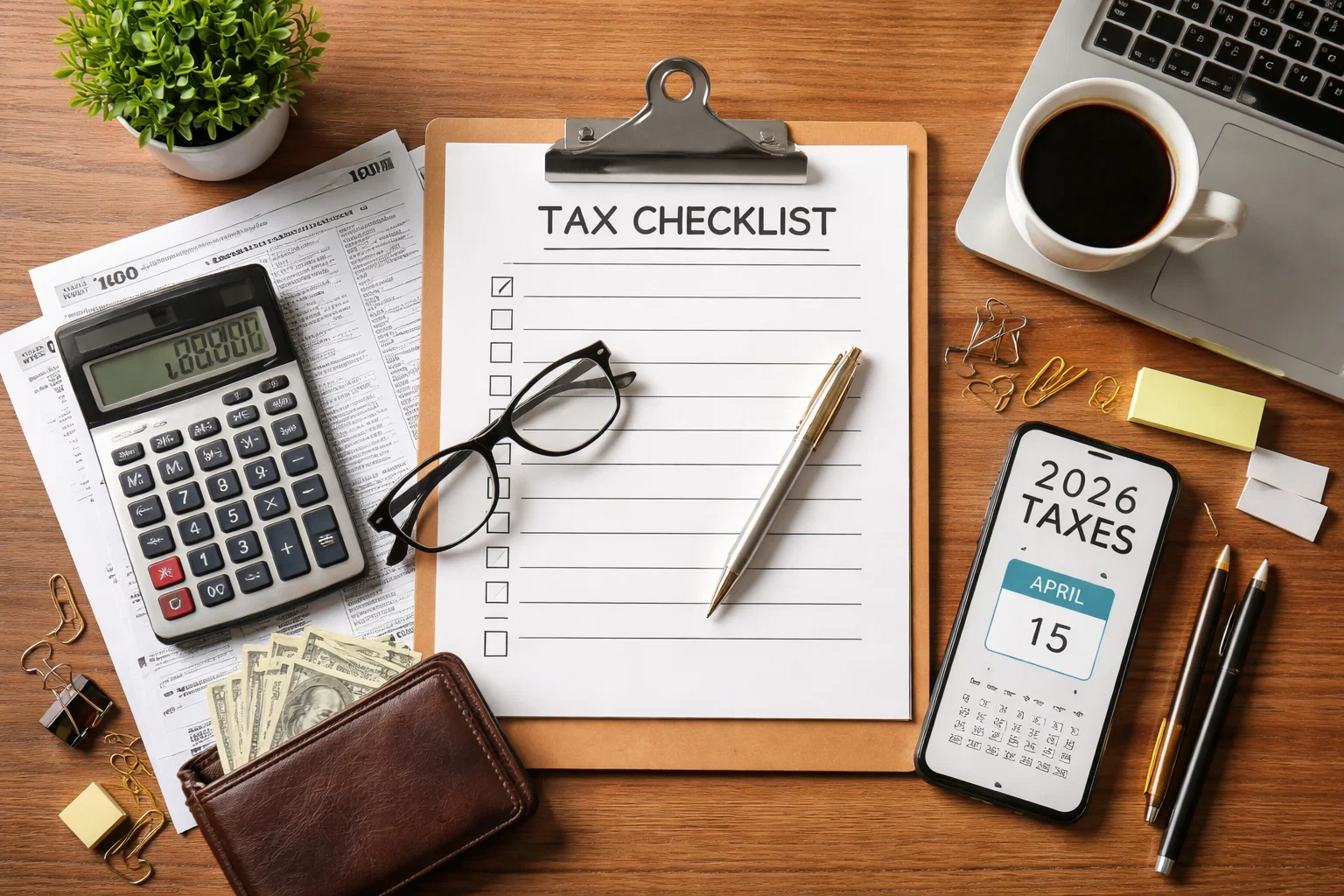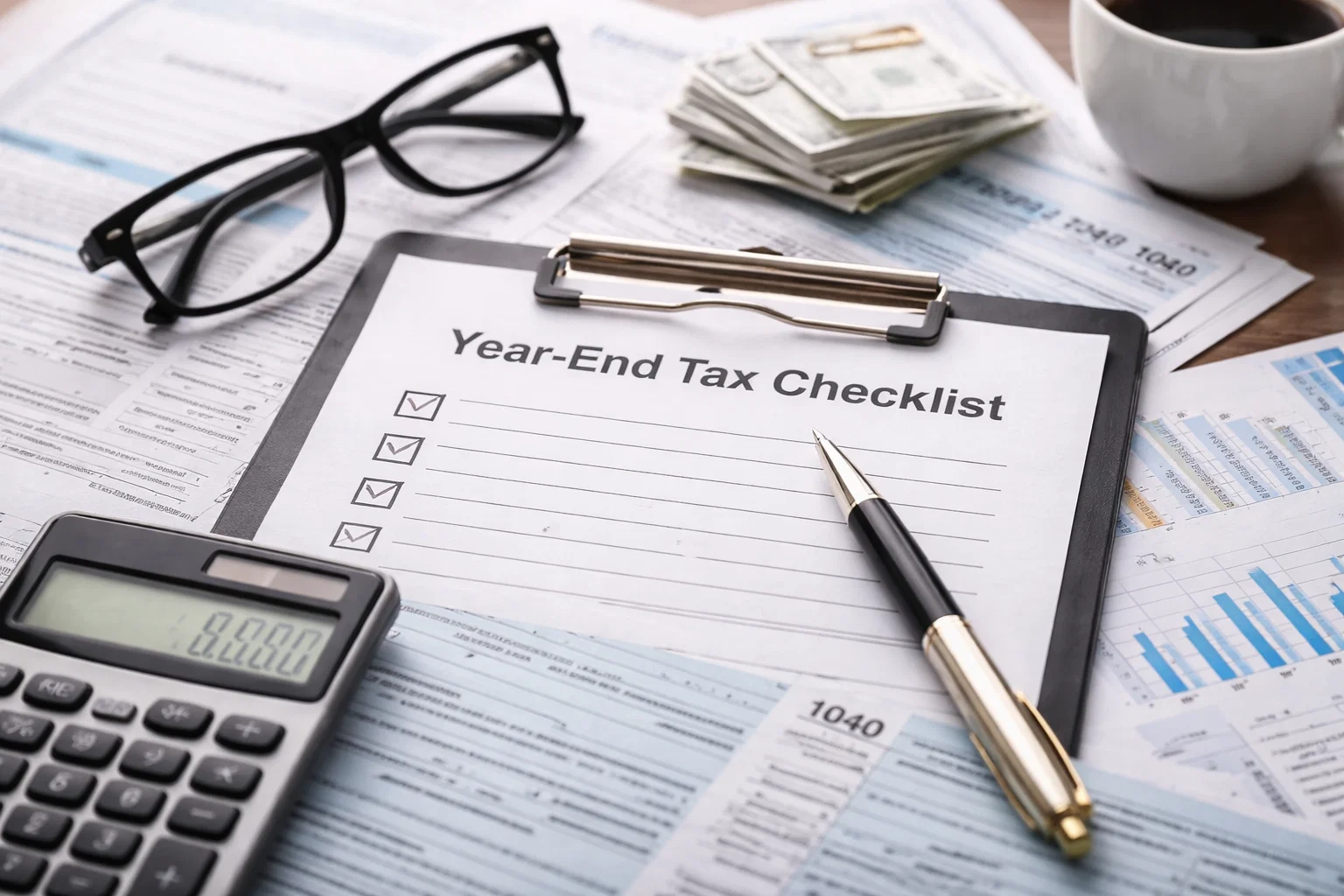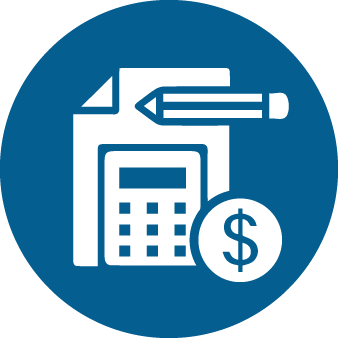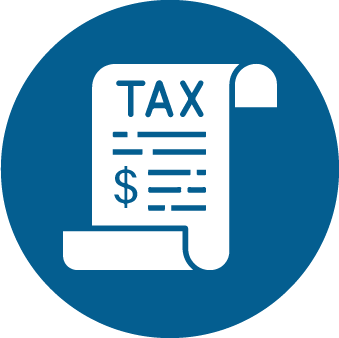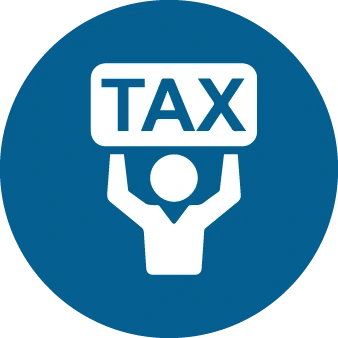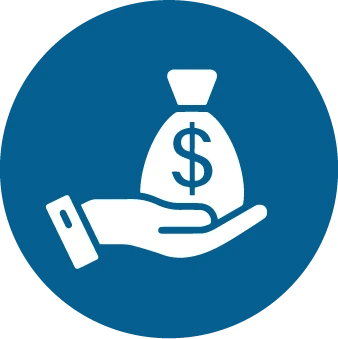Many homeowners find themselves asking fundamental questions, such as "How many times a year do you pay property taxes in NJ?" This common confusion is precisely why understanding the system is crucial for every property owner in the Garden State. The good news is, once you grasp the basics, managing your property tax obligations becomes much clearer.
To directly answer the most pressing question: property taxes in New Jersey are paid four times a year, on a quarterly basis. This guide is designed to be your comprehensive resource, covering everything you need to know about NJ property taxes, from the precise payment schedules and convenient payment options to valuable tax relief programs and the often-misunderstood assessment processes.
We'll delve into the intricacies of your tax bill, explore how your property value impacts your taxes, and highlight special considerations for both new and seasoned homeowners.
The Quarterly Rhythm: When Are NJ Property Taxes Due?
New Jersey operates on a quarterly property tax payment schedule, meaning homeowners are responsible for four distinct payments throughout the year. Missing these deadlines can lead to penalties, so it's essential to mark these dates on your calendar.
The Four Key Dates You Need to Know
Your New Jersey property tax payments are due on the following dates:
- February 1st: This payment covers the first quarter of the year (January, February, March).
- May 1st: This payment covers the second quarter (April, May, June).
- August 1st: This payment covers the third quarter (July, August, September).
- November 1st: This payment covers the fourth quarter (October, November, December).
Understanding the Grace Period
New Jersey law provides a standard 10-day grace period for each quarterly payment. This means you have until the 10th of the month (February 10th, May 10th, August 10th, and November 10th) to make your payment without incurring interest.
However, it's crucial to note that if the 10th day falls on a weekend or a legal holiday, the grace period extends to the next business day. Always confirm with your local municipal tax collector's office for any specific local variations or holiday schedules.
What if You Don't Receive Your Tax Bill?
It's a common misconception that not receiving a tax bill exempts you from paying taxes. However, under New Jersey State Statute N.J.S.A. 54:4-64, failure to receive a tax bill does not exempt you from paying taxes or the interest due on late payments.
Property owners are ultimately responsible for knowing their tax obligations and ensuring timely payments. If you haven't received your tax bill, or if you've misplaced it, immediately contact your municipal tax collector's office to obtain a duplicate bill. Many municipalities now offer the convenience of downloading or viewing your tax bill online.
Annual Billing vs. Quarterly Payments
While property tax bills in New Jersey are often mailed out once a year (typically in July, covering the third and fourth quarters of the current year and the first and second quarters of the following year), and sometimes twice a year in certain municipalities (e.g., Cherry Hill sends bills in July for 3rd/4th and January for 1st/2nd), the payments themselves are always due quarterly.
This annual or semi-annual billing simply provides you with all four quarterly payment stubs at once, allowing you to plan your finances accordingly.
How to Pay Your New Jersey Property Taxes
Paying your property taxes in New Jersey has become increasingly convenient, with various options available to suit different preferences. Understanding these methods and their nuances can help you avoid late payment penalties and manage your financial planning effectively.
Convenient Payment Options for NJ Homeowners
Here are the most common ways to fulfill your property tax obligation:
- Online Payments: Most New Jersey municipalities offer online payment portals, providing a quick and easy way to pay from home. While many offer no-fee options for e-checks or ACH (Automated Clearing House) direct withdrawals from your bank account, be aware that convenience fees (often a percentage or flat fee) may apply if you choose to pay with a credit card or debit card. Always check your municipal website for specific details on fees and accepted payment types.
- Mail: Traditional mail remains a popular option. When mailing your payment, it is crucial to send it early enough to ensure it arrives by the due date. Remember, postmarks are generally not accepted as proof of timely payment; the payment must be received by the tax collector's office by the due date or the end of the grace period. Always include the appropriate payment stub from your tax bill to ensure proper credit to your account.
- In-Person Payments: You can typically pay your property taxes directly at your municipal Tax Collector's Office during business hours. Accepted payment methods usually include checks, money orders, and sometimes cash. Many municipalities also provide a secure drop box or slot, often available 24/7, for after-hours payments. This is a convenient option for those who prefer to deliver their payment physically without waiting in line.
- Bank Bill Pay Services: Many banks offer an online bill pay service that allows you to schedule payments directly from your checking or savings account. When setting this up, ensure you accurately enter the payee name (your municipality's tax collector), the correct mailing address, and your property's account number or block and lot number. Professional bookkeeping services in New Jersey can help you set up and manage these automated payment systems effectively. Be mindful that some bank bill pay services send a physical check, which can cause delays, so factor in extra time for delivery.
- Direct Withdrawal (ACH): This is one of the most hassle-free payment options. By enrolling in an ACH direct withdrawal program, your quarterly property tax payments are automatically deducted from your bank account on the due date. This eliminates the risk of late payments and saves you the effort of manually initiating each transaction. Enrollment typically requires completing a form and providing a voided check, with new enrollments or changes needing to be submitted several weeks before the next due date.
- Pay by Phone: While not universally available, some municipalities offer a pay-by-phone option, often through a third-party service. This can be a convenient alternative if you prefer to make payments over the phone, though it may also involve convenience fees.
Avoiding Late Payment Penalties
New Jersey law is strict regarding late property tax payments. If your payment is not received by the end of the 10-day grace period, interest will begin to accrue from the original due date. The interest rates are typically:
- 8% per annum on the first $1,500 of the delinquency.
- 18% per annum on amounts greater than $1,500.
Furthermore, if the accumulation of all municipal charges (including property taxes, water, sewer, and interest) exceeds $10,000 by the end of the calendar year, a 6% year-end penalty may be applied. For detailed information about what is the penalty for late payment of taxes in NJ, consult with qualified professionals.
These penalties are designed to encourage timely payment and fund local services. Therefore, understanding and adhering to the due dates and grace periods is paramount for every New Jersey homeowner to avoid unnecessary financial burdens.
Demystifying Your NJ Property Tax Bill: What Are You Paying For?
Your New Jersey property tax bill is more than just a number; it's a detailed breakdown of how your contributions are allocated to support the essential services and infrastructure of your community. Understanding what you're paying for can provide valuable insight into the local economy and the public services your tax dollars fund.
A Closer Look at Your Property Tax Statement
While the exact format may vary slightly by municipality, a typical New Jersey property tax bill is comprised of several key components. These components represent the different levels of government and services that rely on property tax revenue. Imagine your property tax bill as a pie chart, with each slice representing a different beneficiary.
Here's a breakdown of the primary components you'll find:
- Municipal Tax: This portion funds your local government operations. This includes vital services such as police and fire departments, public works (road maintenance, sanitation), administrative services, and local parks and recreation. It directly supports the day-to-day functioning of your town or city.
- County Tax: A portion of your property tax goes to the county government. These funds support county-wide services, which can include county roads, social services, public health initiatives, county parks, and the county court system. This ensures that essential services are available across the broader region.
- School Tax: For most New Jersey homeowners, the school tax represents the largest portion of their property tax bill. These funds are dedicated to supporting local public education, covering everything from teacher salaries and school building maintenance to educational programs and student resources. This investment directly impacts the quality of education in your community.
- Other Levies: Depending on your municipality, your bill may include other smaller levies or special assessments. These can include:
- Library Tax: Dedicated to funding local public libraries.
- Open Space Tax: Used for the acquisition and preservation of open space, farmland, and historic sites.
- Fire District Tax: In some areas, a separate tax may be levied to support independent fire districts.
How Property Taxes Fund Your Community
Every dollar you pay in property taxes contributes directly to the tangible local services that enhance your quality of life and the value of your property. These funds are the backbone of your community, enabling:
- Quality Education: Funding for public schools ensures that children have access to resources, qualified teachers, and safe learning environments.
- Public Safety: Your taxes support police, fire, and emergency medical services, ensuring a rapid response in times of need and maintaining community safety.
- Infrastructure Development: Property taxes contribute to the maintenance and improvement of roads, bridges, water systems, and sewer lines, which are critical for daily life and economic activity.
- Recreational Opportunities: Funding for parks, community centers, and recreational programs provides spaces for leisure, exercise, and social engagement.
- Essential Services: From garbage collection and recycling to snow removal and street lighting, property taxes cover the fundamental services that keep your neighborhood clean, safe, and functional.
In essence, your property tax payments are an investment in your community, directly impacting the services and amenities that make New Jersey a desirable place to live. Understanding this connection can help homeowners appreciate the value derived from their tax contributions.
Understanding Property Tax Assessment in New Jersey
One of the most frequently misunderstood aspects of property taxes is the assessment process. Your property tax bill isn't simply pulled out of thin air; it's directly linked to your property's assessed value. Understanding how this value is determined and what recourse you have if you disagree with it is crucial for every New Jersey homeowner.
How Your Property Value Impacts Your Taxes
In New Jersey, your property taxes are calculated based on the assessed value of your home and property. This value is determined by the municipal tax assessor, an official responsible for valuing all real property within the municipality for tax purposes. The assessor's role is to ensure that properties are assessed uniformly and equitably.
It's important to distinguish between assessed value and market value. While market value is what your home would likely sell for on the open market, assessed value is the value assigned to your property for tax purposes. Ideally, the assessed value should reflect a percentage of the market value, but it's not always a direct one-to-one correlation. Factors influencing your property's valuation include its size, age, condition, location, and any improvements made.
Over time, market values can change, leading to discrepancies between assessed values and current market conditions. To address this, municipalities may undergo a revaluation or reassessment. A revaluation is a complete re-appraisal of all properties within a taxing district to ensure that all assessments are at 100% of current market value. A reassessment is an update of property values, often done in-house by the municipal assessor, to reflect changes in the market or individual property improvements. Both processes aim to ensure fairness and equity in the distribution of the tax burden.
The Property Tax Formula
While the exact calculations can be complex, the basic formula for determining your property tax amount is relatively straightforward:
Assessed Value (of your property) x Local Tax Rate (or Mill Rate) = Your Property Tax Amount
The mill rate (or tax rate) is expressed as dollars per $1,000 of assessed value. For example, a mill rate of 20 means you pay $20 for every $1,000 of your property's assessed value. This rate is set annually by the municipality based on its budget needs and the total assessed value of all taxable property within its borders.
Appealing Your Property Tax Assessment
If you believe your property's assessment is unfair or inaccurate, you have the right to appeal your property tax assessment. This process allows homeowners to challenge the assessed value, not the tax rate itself. The initial appeal is typically filed with the County Board of Taxation in your county. Some municipalities also have a local tax appeal process.
To file a successful appeal, you'll need to provide compelling evidence that your property's assessed value is higher than its true market value or that it's not assessed uniformly with comparable properties in your neighborhood. This evidence can include recent sales of similar homes, professional appraisals, or detailed information about your property's condition.
It's crucial to adhere to strict filing deadlines, which are typically by April 1st of the tax year, or 45 days from the date the annual assessment notices are mailed, whichever is later. Understanding this process can potentially lead to a reduction in your property tax burden.
New Jersey Property Tax Relief Programs
New Jersey offers several valuable property tax relief programs designed to help eligible homeowners and renters reduce their tax burden. These programs are a critical resource, especially for seniors, veterans, and those with lower incomes. Understanding the eligibility criteria and application processes can lead to significant savings.
Key Programs to Reduce Your Tax Burden
Here are the primary property tax relief programs available in New Jersey:
ANCHOR Program (Affordable New Jersey Communities for Homeowners and Renters):
The ANCHOR program provides direct property tax relief to eligible New Jersey homeowners and renters. It replaced the Homestead Benefit program and offers substantial relief based on income and residency. The purpose of this program is to make living in New Jersey more affordable for a wide range of residents. For comprehensive information about what is anchor tax relief in nj, homeowners can access detailed eligibility requirements and application procedures.
Who it Benefits: Both homeowners and renters who meet specific income and residency requirements.
Eligibility Criteria: Generally, you must have been a New Jersey resident and either owned or rented a home in New Jersey on October 1st of the application year. Income limits apply and are adjusted annually. For homeowners, the property must be your principal residence. Many residents wonder who is eligible for the NJ property tax relief credit and can find specific requirements through official channels.
Application Process and Typical Timelines: Applications are typically mailed out or made available online by the New Jersey Division of Taxation.
The application period usually runs for several months, with payments or credits issued in the spring of the following year. It's crucial to apply each year you are eligible, as benefits are not automatically renewed. Those seeking information about when will i receive my nj anchor tax relief check can find estimated timelines and distribution schedules.
Property Tax Reimbursement (Senior Freeze):
Often referred to as the "Senior Freeze," this program reimburses eligible senior citizens and disabled persons for property tax increases on their principal residence. Its purpose is to stabilize property tax bills for long-time residents on fixed incomes, ensuring that rising property taxes don't force them out of their homes.
Purpose: Reimburses qualified applicants for the difference between the amount of property taxes paid in the "base year" (the first year you met all eligibility requirements) and the amount paid in the application year, provided the application year's taxes are higher.
Eligibility: You must be 65 or older or receiving federal Social Security Disability benefits, have lived in New Jersey for at least 10 consecutive years, and owned and lived in your home for at least the last 3 consecutive years. Income limits apply and must be met for both the base year and the application year.
The property must be your principal residence. Seniors often ask at what age do you stop paying property tax in NJ, and while you don't completely stop paying, significant relief programs are available.
Application Process and Timelines: Applications are typically mailed to previous recipients in February. New applicants can obtain forms from the Division of Taxation website. The deadline is usually October 31st. Reimbursements are generally issued in the late fall or early winter.
Stay NJ Program (New)
The Stay NJ program is a newer initiative proposed to provide significant property tax relief specifically for eligible senior citizens. If fully implemented as proposed, it aims to offer up to a 50% reimbursement on property taxes, potentially capped at $6,500, for seniors who meet specific residency and homeownership criteria (e.g., lived in New Jersey for at least 10 years and owned their home for at least 5 years).
This program is intended to work in conjunction with, but not duplicate, benefits from the ANCHOR and Senior Freeze programs.
Purpose: The proposed purpose is to provide substantial property tax relief to long-term senior homeowners, making New Jersey more affordable for them to age in place.
Eligibility (Proposed): Generally, applicants would need to be 65 or older, have lived in New Jersey for at least 10 years, and owned their home for at least 5 years. Income limits would also apply. The program is designed to integrate with ANCHOR and Senior Freeze, ensuring eligible seniors receive the maximum possible benefit without double-dipping.
Application Process and Current Status: As a recently enacted but not yet fully operational program, details regarding the precise application process, funding, and specific timelines are still being finalized and communicated by the state. Homeowners should monitor the New Jersey Division of Taxation website for the latest official updates and application availability, as the program's full implementation is contingent on ongoing legislative and budgetary actions.
Senior Citizen Deduction:
Provides a $250 annual deduction from property taxes for homeowners aged 65 or older who meet certain income and residency requirements. The property must be their principal residence. For more details about what is the $250 property tax deduction in NJ, eligible homeowners can review specific application requirements and deadlines.
Veteran Deduction:
Offers a $250 annual deduction for qualified veterans who served during specific periods of war or conflict, or their surviving spouses. The veteran must have been honorably discharged.
Disabled Person Deduction:
Provides a $250 annual deduction for homeowners who are permanently and totally disabled and meet income and residency requirements.
Where to Find More Information and Apply
For the most accurate and up-to-date information on these property tax relief programs, including detailed eligibility requirements, application forms, and deadlines, always refer to the official New Jersey Division of Taxation website.
They also provide hotlines for direct assistance with specific program inquiries. Additionally, your local municipal tax collector's office can often provide guidance and application forms for these state-run programs.
Professional tax relief service near nj providers can also assist with navigating complex relief programs and ensuring proper application submission.
Special Considerations for NJ Property Owners
Beyond the regular quarterly payments and relief programs, New Jersey property owners may encounter specific scenarios that impact their tax obligations.
Understanding these special considerations is key to proactive financial management and avoiding unexpected issues.
Important Scenarios and What You Need to Know
New Homeowners: If you've recently purchased a home in New Jersey, congratulations! However, it's crucial to understand your property tax responsibilities from day one.
While your title company or attorney will handle the initial prorated taxes at closing, it can take several months for the municipal tax collector's office to update their records with the new ownership information.
During this transition, you might not immediately receive a tax bill in your name. It is your responsibility to obtain tax information and ensure payments are made.
Don't wait for a bill to arrive; proactively contact your municipal tax collector's office shortly after closing to confirm your property's tax status, obtain a copy of the current bill, and understand the payment schedule. A helpful checklist for new property owners would include:
- Confirming the tax due dates for your property.
- Verifying if your mortgage lender is escrowing your property taxes.
- Obtaining a copy of your current tax bill from the tax collector.
- Understanding any prorated amounts from your closing statement.
- Added Assessments: Making improvements to your home, such as adding an extension, finishing a basement, or constructing a new garage, can increase its assessed value. These improvements may trigger an added assessment tax bill.
- This bill is separate from your regular quarterly bills and accounts for the increased value of your property due to the improvements. Added assessment bills are typically issued in October and cover the value added from the date of completion of the improvement through the end of the current tax year, and for the full following year.
It's important to be aware of these potential additional tax obligations when planning home renovations. If you escrow your taxes with a mortgage company, it's vital to check with your mortgage company to confirm whether they will pay the added assessment bill or if it's your responsibility to pay it directly.
Property Tax Sale:
Failure to pay your property taxes can lead to severe consequences, including a property tax sale. In New Jersey, if property taxes or other municipal charges (like water or sewer bills) remain unpaid from the prior year, the municipal tax collector is legally required to hold a tax sale. During a tax sale, a lien is placed on the property, and an interested party can bid to "purchase" this tax sale certificate. This certificate represents a lien against your property.
While you retain ownership, the lienholder gains certain rights. The property owner typically has a redemption period (up to two years) to pay off the lien, including interest and penalties. If the certificate is not redeemed within this period, the lienholder may initiate foreclosure proceedings, leading to the potential loss of your property.
Understanding the gravity of unpaid taxes is crucial for all homeowners. For those facing this situation, learning how do I pay off a tax lien in NJ can provide essential guidance for resolving these serious financial obligations.
Mortgage Escrow Accounts
Many homeowners pay their property taxes through a mortgage escrow account. If you have a mortgage, your lender may collect an additional amount with your monthly mortgage payment, which is then held in an escrow account.
The lender uses these funds to pay your property tax bills (and often homeowner's insurance premiums) on your behalf when they become due.
This simplifies the process for homeowners, as they don't have to worry about remembering quarterly due dates. However, if you pay off your mortgage or refinance, you may terminate your escrow account.
In such cases, the responsibility for direct payment of property taxes reverts to you, and you must ensure you have the funds set aside and are aware of all due dates to avoid penalties.
Experienced accounting firms in nj can help you transition from escrow to direct payment systems and establish proper financial management practices.
Frequently Asked Questions (FAQ)
Here are answers to some of the most common questions New Jersey homeowners have about property taxes:
Can I pay my NJ property taxes monthly?
While property taxes in New Jersey are officially due quarterly, some homeowners manage to pay them monthly by setting aside a portion of their income each month into a separate savings account.
If you have a mortgage, your lender likely collects a monthly amount for property taxes and holds it in an escrow account, effectively allowing you to pay monthly. However, direct monthly payment options to the municipality are rare; payments are typically accepted only on the quarterly due dates.
What happens if I pay my property taxes late?
If your payment is not received by the end of the 10-day grace period, interest will be charged on the delinquent amount from the original due date. The interest rate is typically 8% per annum on the first $1,500 of the delinquency and 18% per annum on amounts greater than $1,500. Additionally, a 6% year-end penalty may be applied if total municipal charges exceed $10,000 by year-end.
How do I change my mailing address for my tax bill?
To change your mailing address for your property tax bill, you must contact your municipal Tax Collector's Office directly. They will provide you with the necessary forms or instructions to update your records. It's crucial to do this promptly to ensure you receive all official correspondence regarding your property taxes.
Is there a discount for paying my property taxes early?
New Jersey law does not permit municipalities to offer discounts for early payment of property taxes. Payments are due on the specified quarterly dates, and interest is only charged on delinquent amounts.
How can I find my property tax information online?
Most New Jersey municipalities provide online portals where you can look up your property tax information, view your tax bill, and often make payments. Visit your specific municipal website and look for sections related to the Tax Collector or Tax Assessor. You will typically need your property's block and lot number or street address to access this information.
What is the difference between assessed value and market value?
Market value is the price a property would likely sell for on the open market. Assessed value is the value assigned to your property by the municipal tax assessor for the purpose of calculating property taxes.
While the assessed value should ideally be a percentage of the market value, they are not always the same. Your property taxes are based on the assessed value, not necessarily the market value. Professional business tax services can help property owners understand these valuations and their impact on tax obligations.
For homeowners seeking professional guidance on tax matters, qualified tax accountant new jersey professionals can provide personalized assistance with property tax planning and compliance. Additionally, those planning for their financial future might benefit from retirement planning in NJ services that factor in long-term property tax obligations.
Conclusion
Understanding your New Jersey property tax obligations is a cornerstone of responsible homeownership in the Garden State. By now, you should have a clear answer to "How many times a year do you pay property taxes in NJ?" – four times annually, on a quarterly schedule. More importantly, you now possess a deeper understanding of the due dates, the various convenient payment options available, and the critical importance of avoiding late payment penalties.
We've also explored how your property tax dollars contribute directly to the vibrancy and functionality of your local community, funding everything from schools and public safety to infrastructure and parks.
Demystifying your tax bill and understanding the assessment process empowers you to be a more informed homeowner. Furthermore, being aware of the valuable property tax relief programs, such as ANCHOR, Senior Freeze, and Stay NJ, can unlock significant savings for eligible residents.
We encourage all New Jersey homeowners to stay informed, utilize the available resources from your municipal tax collector and the NJ Division of Taxation, and proactively manage your property tax responsibilities.
For businesses in NJ
For businesses operating in New Jersey, professional payroll near you in NJ services can help manage payroll tax obligations alongside property tax planning.
Companies seeking comprehensive financial oversight might also consider part-time cfo services to ensure all tax obligations are properly managed and strategic financial planning is implemented. For those preferring modern solutions, virtual service bookkeeping usa options provide convenient access to professional financial management services.
By doing so, you not only ensure your financial well-being but also contribute to the continued growth and prosperity of your community. Property taxes, while a significant expense, are a vital investment in the place you call home.
Related Articles
Services provided for you
Bookkeeping Services in Clifton, NJ
We serve a range of industries and customers, in an organized, friendly, and reliable way.
Business Tax Services
We are in a position to identify tax planning shots that reduce both your current and future tax liabilities.
Individual Tax Services
We gauge our worth by the personal and business successes of our clients and industries.
Payroll Services
For small and large corporations, payroll systems, highly qualified payroll experts support our services. Our primary objective is to provide customized services and highly favorable pricing for you.
Non-Profit Organization Services
Precision Accounting Intl can assist you set up and maintain your non-profit organizations nontaxable standing by handling all the authority reportage for you.
Part-Time CFO Services
If you"re ready enough to be in this role. Our Part-Time CFO Service Package provides you with a knowledgeable financial manager who will work with you to help guide the progress of your business.



